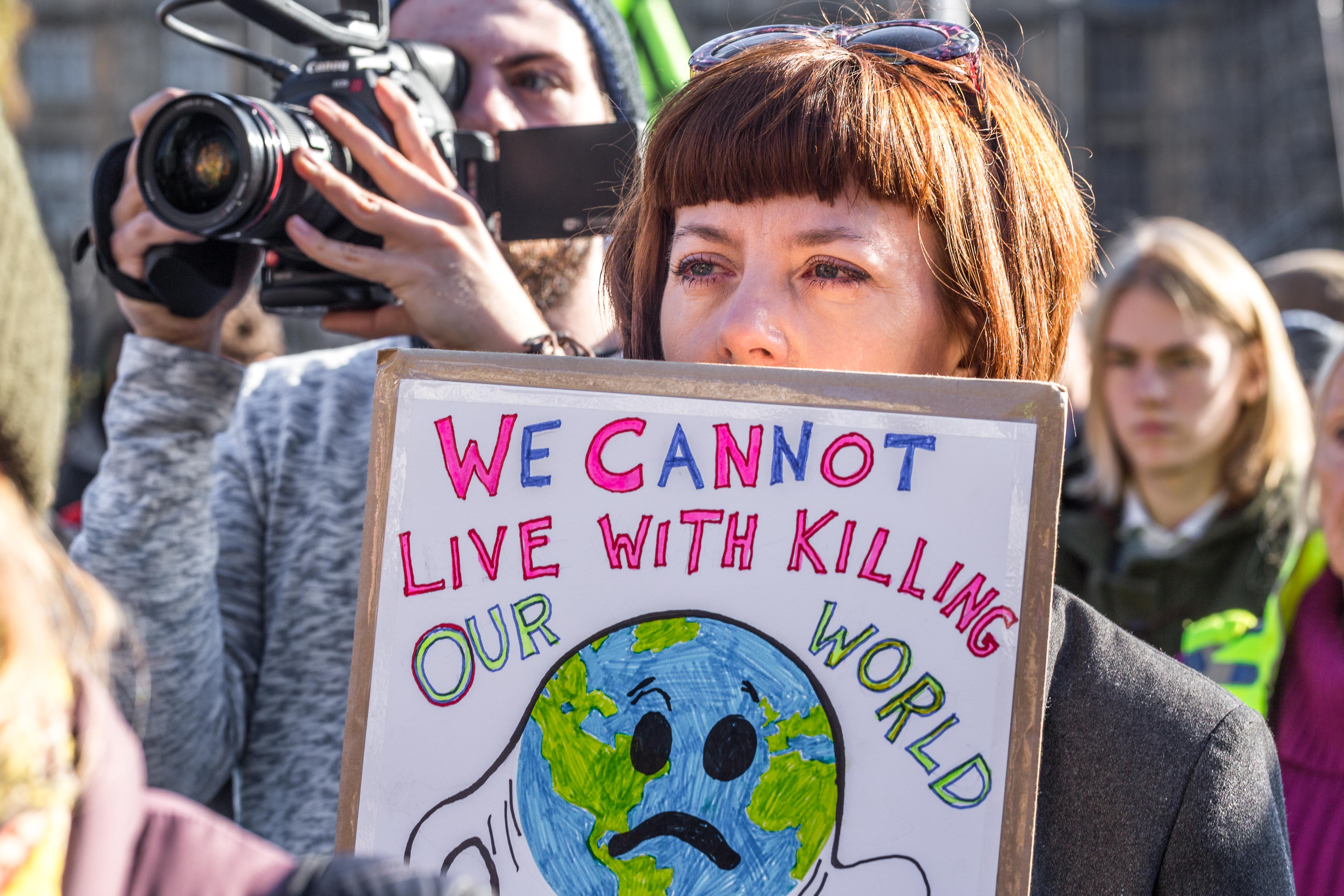This morning environmental protesters blocked Parliament Square, marking the start of a mass civil disobedience campaign demanding government action on climate change.
Around 1,000 protesters descended on Westminster and brought Parliament Square to a standstill by blockading traffic. The protest lead to the arrest of 15 people who have since been released without charge.
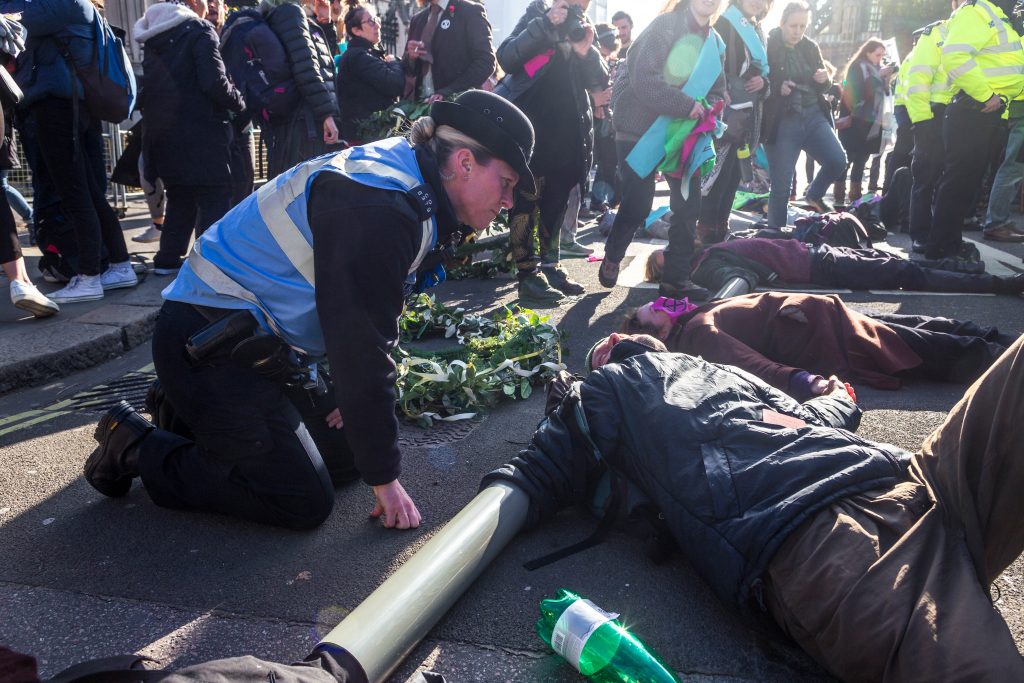 Credit: Extinction Rebellion Thomas Katan
Credit: Extinction Rebellion Thomas Katan
Climate change campaigners, including the writer George Monbiot, Caroline Lucas MP and Green MEP Molly Cato, addressed the crowd.
Cato said, “We are here because we have a deep love and spiritual connection to the planet. We must rise-up. When the law tells you to support something that your deep inner voice is fundamentally against, you should take non-violent direct action.”
This is the only way we will get those in parliament to listen.
Caroline Lucas MP
Former Green Party leader Caroline Lucas, MP for Brighton and Hove, argued that, “This is the only way we will get those in parliament to listen.”
George Monbiot said, “We are here to keep fossil fuels in the ground … to not only protect what we still have but to bring back what we lost… I’ve been waiting 33 years, and nothing came from this building [parliament].”
Civil Disobedience Campaign Calls for Non-Violent Uprising
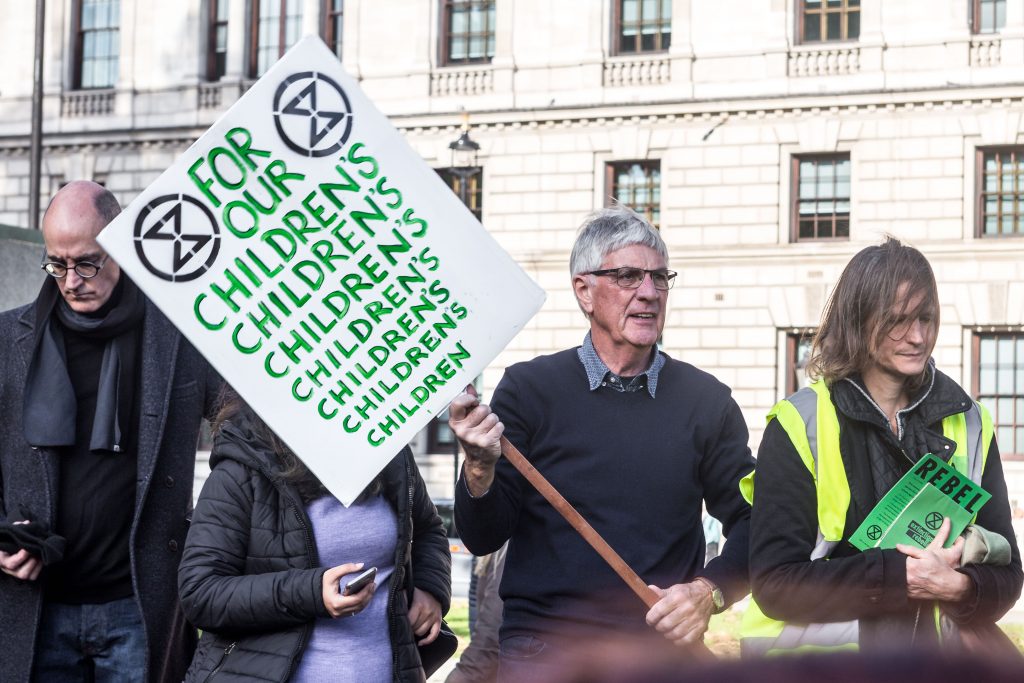 Credit: Extinction Rebellion Thomas Katan
Credit: Extinction Rebellion Thomas Katan
The direct action was organised by Extinction Rebellion, a new movement calling for mass peaceful civil disobedience to force the government to address the catastrophic impact of climate change.
It marked the beginning of a series of events taking place across the country and building towards Rebellion Day on November 17th.
Extinction Rebellion said, “The disruption we have caused today is nothing to the destruction that is being unleashed by our leaders’ criminal inaction on climate and ecological breakdown.
Our politicians have failed us. We must take our future into our own hands.
Extinction Rebellion
“Our politicians have failed us. We must take our future into our own hands. Today we pledge, in accordance with our consciences, and with a clear duty to our children; our communities; this nation and planet; a non-violent rebellion on behalf of life itself and against our criminally negligent government.”
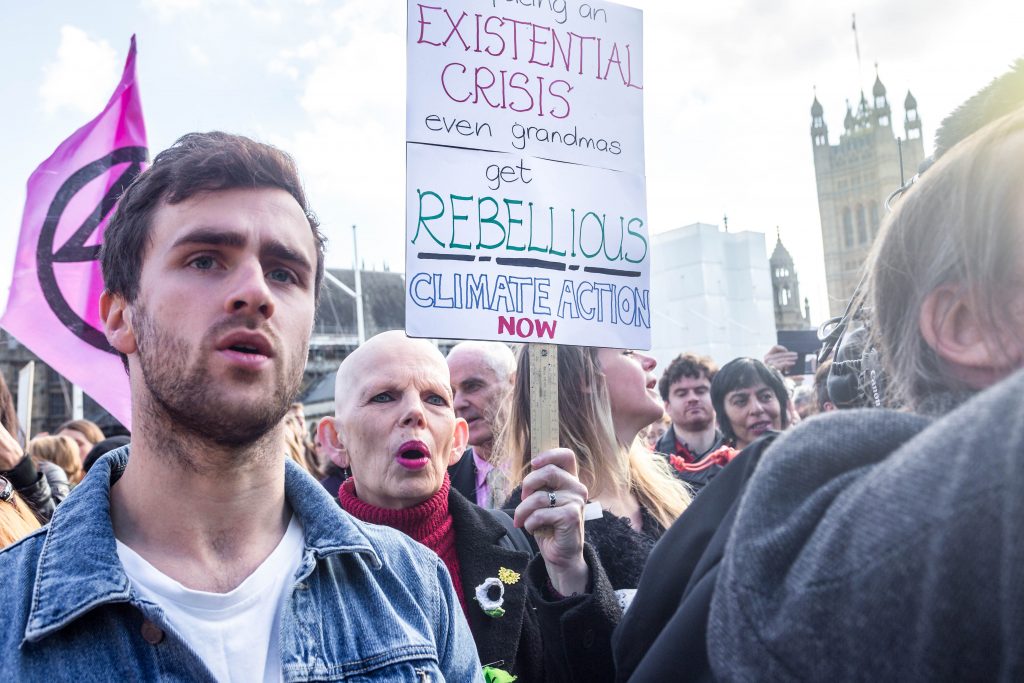 Credit: Extinction Rebellion Thomas Katan
Credit: Extinction Rebellion Thomas Katan
“The abject failure to protect citizens and the next generations from unimaginable suffering brought about by climate breakdown and social collapse is no longer tolerable.
We have both a right and duty to rebel
Extinction Rebellion
“We have both a right and duty to rebel in the face of this tyranny of idiocy, of this planned collective suicide. Join us.”
Extinction Rebellion’s demands include calling on the government to admit “the truth about the ecological emergency” and to “reverse all policies inconsistent with addressing climate breakdown.” It also urges the government to “enact legally binding policy measures to reduce carbon emissions to net zero by 2025 and to reduce consumption levels.”
Greta Thunberg, the 15-year-old Swedish environmental activist who refused to go to school to protest the Swedish government’s inaction, travelled by electric car to attend the protest.
Campaign Draws on a Global History of Civil Disobedience
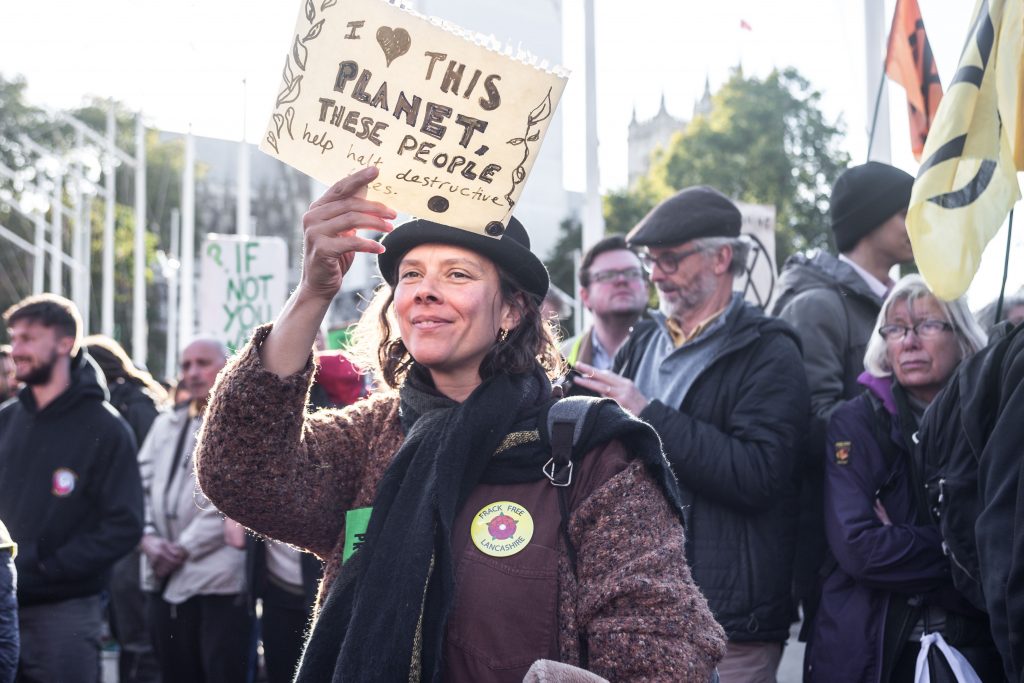 Credit: Extinction Rebellion Thomas Katan
Credit: Extinction Rebellion Thomas Katan
Extinction Rebellion is inspired by mass disobedience and direct action movements in both Britain and the rest of the world. These movements include the suffragettes, the battle for civil rights in America, the fight to end Apartheid in South Africa and the non-violent Indian independence movement.
Climate protest in Britain has been brought into sharp focus by direct action against fracking.
In September 2018, three activists protesting against fracking became the first environmental protesters to be jailed for non-violent protest since 1932. Their prison sentences were later overturned on appeal.
Their initial jailing raised fears that the right to protest is under threat. The right to protest is a cornerstone of democracy and is protected by human rights.
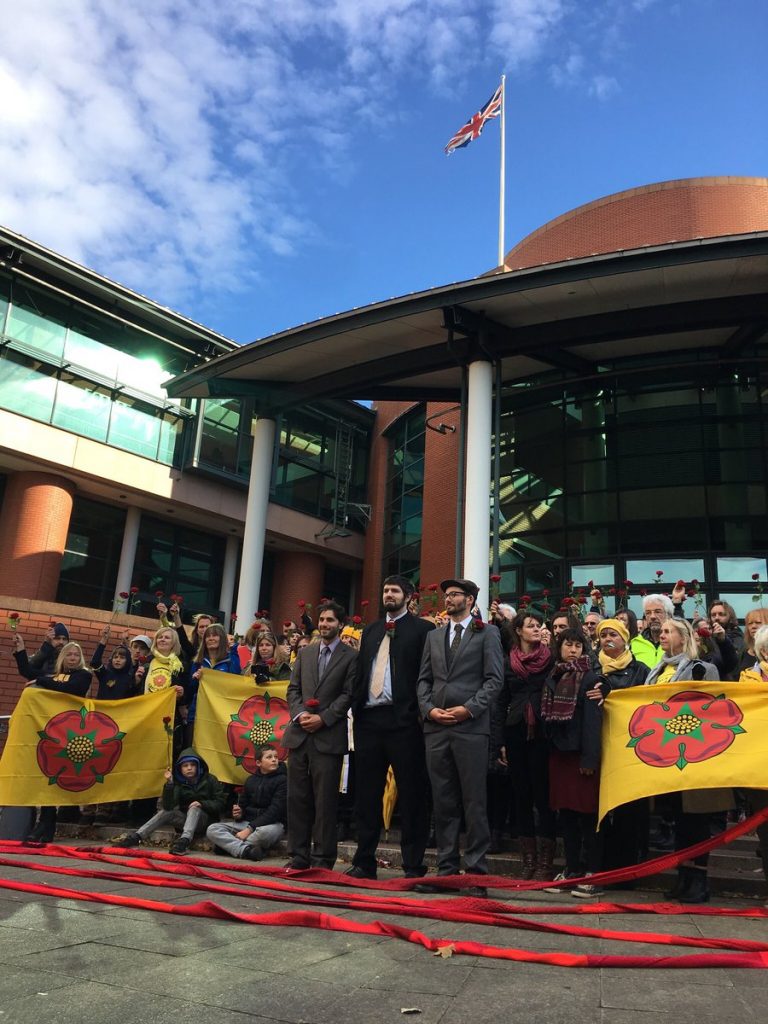 The three protestors who were jailed for non violent direct action against fracking Credit: Frack Free Four
The three protestors who were jailed for non violent direct action against fracking Credit: Frack Free Four
The right to protest falls under Article 11 of the Human Rights Convention, the right to free association, which protects the right of a group to take collective action and the right to freedom of assembly.
It also protects the ability of people to come together and collectively express, promote, pursue, and defend their collective or shared ideas
However, Article 11 is a ‘qualified right’, which means it can lawfully be interfered with in the interest of public safety, the prevention of disorder or crime, or the protection of other people’s rights and freedoms.
The right to protest also involves Article 10 of the Human Rights Convention, which protects the right to free expression. This means we can have our own opinions and share them with others, including publicly and as part of a group. Article 10 is also a qualified right, and can be restricted in certain circumstances.
It states: “Everyone has the right to freedom of expression. This right shall include freedom to hold opinions, and to receive and impart information without interference by public authority and regardless of frontier.”
The Human Rights Act 1998 marked the first time in English law that the right to protest was explicitly protected.

